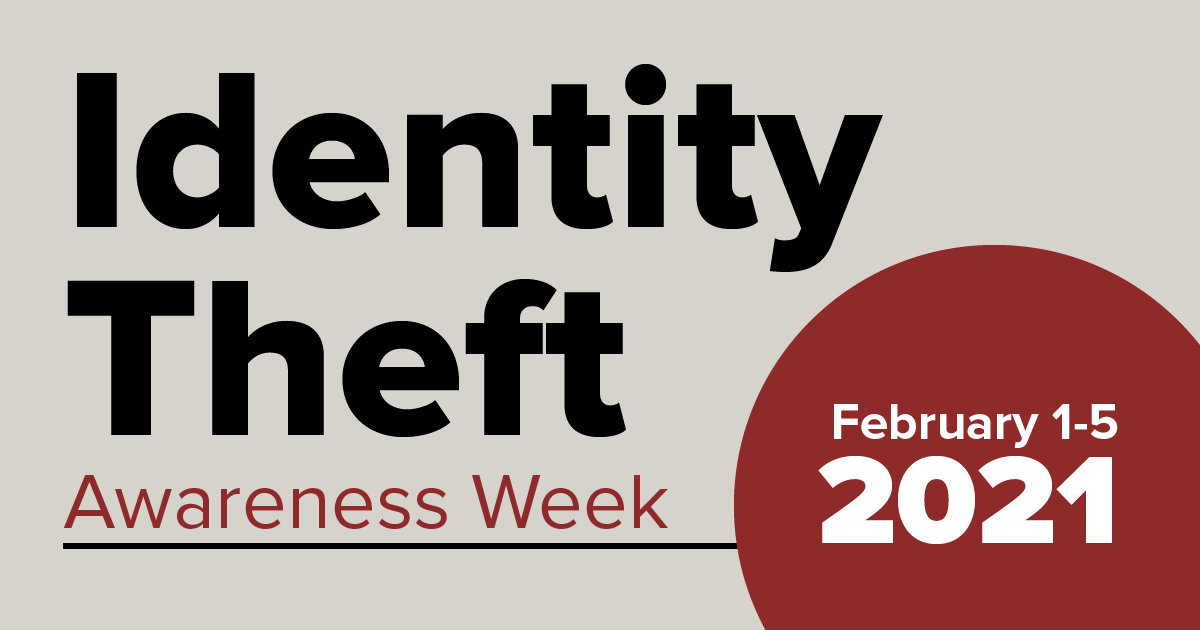The challenges that COVID-19 has brought include a higher risk of identity theft. In 2020, the FTC got about 1.4 million reports of identity theft, double the number from 2019. Repeatedly, identity thieves targeted government funds earmarked to help people hard hit financially by the pandemic. Join us for Identity Theft Awareness Week, February 1-5. Learn about protecting yourself from identity theft, and recovering if it happens to you .
.
The FTC and its partners will co-host a series of free events. Among them, a webinar with the Identity Theft Resource Center (ITRC), and a Facebook Live event where experts from the AARP Fraud Watch Network and the FTC will take your questions. Visit ftc.gov/IDtheftweek to learn more.
2020’s biggest surge in identity theft reports to the FTC related to the nationwide dip in employment. After the government expanded unemployment benefits to people left jobless by the pandemic, cybercriminals filed unemployment claims using other people’s personal information. In 2020, we had 394,280 reports about government benefits fraud — overwhelmingly about identity theft involving unemployment benefits. Compare that with 12,900 reports in 2019.
People also reported identity theft in which criminals used their business or personal information to get money from government-sponsored small business loan programs. Last year, we had 99,650 reports of fraud involving business or personal loans, compared with 43,920 reports in 2019. Not all of the new reports related to the government relief effort, but they were a big share of the increase.
People told us about identity theft involving their federal stimulus payments from the IRS by reporting it as tax identity theft. In 2020, the FTC got 89,390 reports of tax identity theft, compared with 27,450 reports in 2019. While many of the reports concerned other types of tax identity theft, the report numbers began to swell when distribution of the stimulus payments began.
Join us for Identity Theft Awareness Week to learn more about identity theft during the pandemic.
